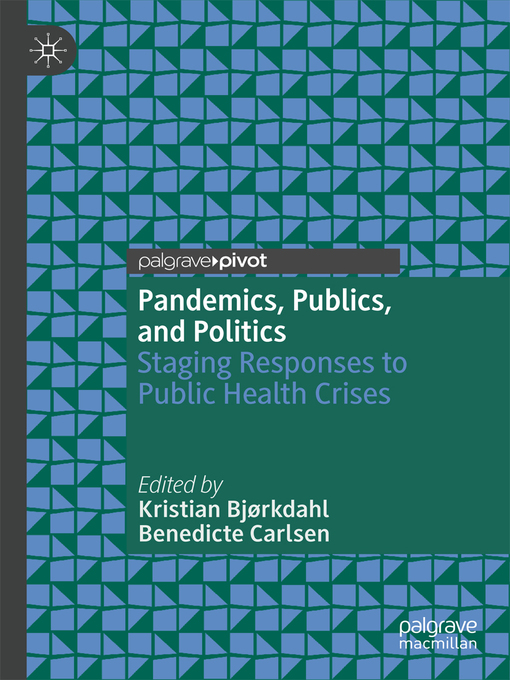- Popular ebook fiction
- Truth and Reconciliation in Canada
- MMIWG
- Mental Health
- Canadian Indigenous Voices
- February Romance 2024
- Canada Reads 2024 longlist
- Black History Month 2024
- Freedom to Read Week 2024
- February - I love to read month
- See all
-
Description
-
Creators
-
Details
This book presents research on the 2009 pandemic and other public health crises in an attempt to describe and analyze the distinctive challenges that such diseases pose today. Thanks to vaccines, more reliable provision of medical services, more effective means of communication, and a more educated public, some argue we will not see a new Black Plague – or even Spanish Flu – in our time. Today we face new challenges, however, which can both enable diseases to reach pandemic scales and affect our ability to enact an appropriate response. Those include fragmentation of media, tribalization of "knowledge regimes," the increasingly troubled status of scientific and political expertise, growing cross-continental mobility, as well as the globalization and commercialization of pandemic response systems. These distinctive complexities make the need to stage public action in response to pandemics and other public health crises a crucial problem, on which thousands of human lives hinge.
This volume consists of a handful of social science and humanities studies of precisely such complexities, and thus offers a much-needed supplement to existing research on pandemics and pandemic response.

- Kristian Bjørkdahl - Editor
- Benedicte Carlsen - Editor
OverDrive Read
- ISBN: 9789811328022
- Release date: November 3, 2018
EPUB ebook
- ISBN: 9789811328022
- File size: 303 KB
- Release date: November 3, 2018
